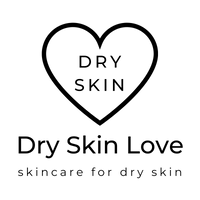Winter dry skin is dry skin that develops during the cold winter season.
To prevent winter dry skin, you must protect your skin barrier, including your moisture barrier, lipid barrier and acid mantle.
This article will discuss:
- What is winter dry skin?
- How to prevent winter dry skin?
- How to protect your moisture barrier
- How to protect your lipid barrier
- How to protect your acid mantle
- Summary
- References
What is winter dry skin?
'Winter dry skin' is dry skin that develops during the cold winter season.
Winter dry skin can have a wide spectrum of symptoms - from mild dryness and flaking to severe itching, redness and pain.
Dry skin is due to a lack of water, humectants and lipids/fats in the skin barrier.
Exposure to winter weather can weaken your skin barrier and its protective functions.
Winter dry skin has been reported to involve scaling, defects in water holding and barrier functions, and decreased lipid levels in the stratum corneum (Ishikawa et al, 2013).
Learn more: Winter Dry Skin - What is it?
How to prevent winter dry skin?
Winter dry skin can be caused by cold temperatures, low humidity, harsh winds and sun exposure.
These factors can damage your skin barrier, including your moisture barrier and lipid barrier.
The key to preventing winter dry skin is to protect your skin barrier.
Protect your skin barrier
To treat dry skin in winter, you must protect your skin barrier, including your moisture barrier, lipid barrier and acid mantle.
What is the skin barrier?
Your skin barrier includes the outermost layers of skin, called the stratum corneum.
The skin barrier can be thought of as a brick wall that protects you.
When your skin barrier is healthy, it feels and appears smooth, soft, and plump.
In contrast, a damaged skin barrier looks dry, rough, dull, and dehydrated, and may become irritated, inflamed and itchy.
The skin barrier includes:
- The moisture barrier
- The lipid barrier
- The acid mantle
Learn More: What is The Skin Barrier

How to protect your moisture barrier
The skin moisture barrier is composed of water, natural moisturizing factors (NMFs) and other humectants, such as glycerol and hyaluronic acid to attract and hold onto moisture.
There are several ways to protect your moisture barrier:
- Drink water
- Use a humidifier
- Use a moisturizer with humectants
- Limit exposure to cold weather
- Protect your skin from the elements
Learn more: How To Protect Your Skin's Moisture Barrier

How to protect your lipid barrier
The lipid barrier is made of epidermal lipids and sebum.
There are several ingredients that can protect your lipid barrier:
- Emollients
- Carrier Oils - such as virgin coconut oil
- Linoleic acid - found in apple seed oil
- Occlusives - such as jojoba oil
Learn more: How To Protect Your Skin's Lipid Barrier
How to protect your acid mantle
Many factors can affect the pH of the skin, including age, sebum, sweat, detergents, cosmetics, and irritation (Ali et al, 2013; Yosipovitch et al, 1996).
How to protect your skin's acid mantle:
- Avoid high pH soaps
- Use a gentle cleanser
- Try an oil cleanser
A proper skin pH is important to maintain health skin.
Learn more: How To Protect Your Skin's Acid Mantle

Summary
Winter weather is harsh on your skin.
Winter dry skin appears dry, rough, and may scale and flake. It may also show premature signs of aging, like fine line, surface wrinkles and loss of elasticity.
To prevent winter dry skin, you must protect your skin barrier, including your moisture barrier, lipid barrier and acid mantle.
It is important to protect your skin against winter conditions to prevent winter dry skin.
Prevent Dry Skin
Dry Skin Love Apple Elixir 5% Vitamin E Face Oil is a luxurious face oil that makes your dry skin feel nourished, soft, calm and protected.
Our Apple Elixir 5% Vitamin E Face Oil is packed with nutrient-rich plant oils, including cold-pressed apple seed oil, virgin coconut oil and golden jojoba oil.
Made with 8 types of natural vitamin E - including tocopherols and rare tocotrienols.
Your skin will look plumper and the appearance of fine lines will be minimized.
Your skin will have a more youthful appearance.

References
Agero AL, Verallo-Rowell VM. A randomized double-blind controlled trial comparing extra virgin coconut oil with mineral oil as a moisturizer for mild to moderate xerosis. Dermatitis. 2004 Sep;15(3):109-16.
Ali SM, Yosipovitch G. Skin pH: from basic science to basic skin care. Acta Derm Venereol 2013; 93: 261–267.
Brown A, Butcher M. A guide to emollient therapy. Nurs Stand. 2005 Feb 23-Mar 1;19(24):68, 70, 72 passim.
D'Orazio J, Jarrett S, Amaro-Ortiz A, Scott T. UV radiation and the skin. Int J Mol Sci. 2013 Jun 7;14(6):12222-48.
Draelos ZD. The science behind skin care: cleansers. J Cosmet Dermatol. 2018 Feb;17(1):8-14.
Engebretsen KA, Johansen JD, Kezic S, Linneberg A, Thyssen JP. The effect of environmental humidity and temperature on skin barrier function and dermatitis. J Eur Acad Dermatol Venereol. 2016 Feb;30(2):223-49.
(2002) The skin in the cold, International Journal of Circumpolar Health, 61:3, 277-286.
Evangelista MT, Abad-Casintahan F, Lopez-Villafuerte L. The effect of topical virgin coconut oil on SCORAD index, transepidermal water loss, and skin capacitance in mild to moderate pediatric atopic dermatitis: a randomized, double-blind, clinical trial. Int J Dermatol. 2014 Jan;53(1):100-8.
Fluhr JW, Darlenski R, Surber C. Glycerol and the skin: holistic approach to its origin and functions. Br J Dermatol. 2008.
Gfatter R, Hackl P, Braun F. Effects of soap and detergents on skin surface pH, stratum corneum hydration and fat content in infants. Dermatology 1997; 195: 258–262.
Goad N, Gawkrodger DJ. Ambient humidity and the skin: the impact of air humidity in healthy and diseased states. J Eur Acad Dermatol Venereol. 2016 Aug;30(8):1285-94.
Ishikawa J, Yoshida H, Ito S, Naoe A, Fujimura T, Kitahara T, Takema Y, Zerweck C, Grove GL. Dry skin in the winter is related to the ceramide profile in the stratum corneum and can be improved by treatment with a Eucalyptus extract. J Cosmet Dermatol. 2013 Mar;12(1):3-11.
Kerr JB. Understanding the factors that affect surface ultraviolet radiation. Optimal Engineering. 2005;44.
Knapik JJ, Reynolds KL, Castellani JW. Frostbite: Pathophysiology, Epidemiology, Diagnosis, Treatment, and Prevention. J Spec Oper Med. 2020 Winter;20(4):123-135.
Mac-Mary S, Creidi P, Marsaut D, et al. Assessment of effects of an additional dietary natural mineral water uptake on skin hydration in healthy subjects by dynamic barrier function measurements and clinic scoring. Skin Res Technol. 2006;12:199-205.
Matsumura Y, Ananthaswamy HN. Toxic effects of ultraviolet radiation on the skin. Toxicol Appl Pharmacol. 2004 Mar 15;195(3):298-308.
Moncrieff G, Cork M, Lawton S, Kokiet S, Daly C, Clark C. Use of emollients in dry-skin conditions: consensus statement. Clin Exp Dermatol. 2013 Apr;38(3):231-8; quiz 238.
Newton H. Using emollients to promote safe and effective skin care for patients. Nurs Stand. 2021 Oct 6;36(10):77-82.
Palma L, Marques LT, Bujan J, et al. Dietary water affects human skin hydration and biomechanics. Clin Cosmet Investig Dermatol. 2015a;8:413-421.
Palma ML, Tavares L, Fluhr JW, et al. Positive impact of dietary water on in vivo epidermal water physiology. Skin Res Technol. 2015b;21:413-418.
Palma L, Marques LT, Bujan J, et al. Relationship between the dietary intake of water and skin hydration. Biomed Biopharm Res, 2012; 2: 173-181.
Pappas A. Epidermal surface lipids. Dermatoendocrinol. 2009 Mar;1(2):72-6.
Prottey C, Ferguson T. Factors which determine the skin irritation potential of soaps and detergents. J Soc Cosmetic Sci. 1975;26:29- 46.
Roure R, Lanctin M, Nollent V et al. Methods to assess the protective efficacy of emollients against climatic and chemical aggressors. Dermatol Res Pract 2012; 2012: 864734.
Verallo-Rowell VM, Dillague KM, Syah-Tjundawan BS. Novel antibacterial and emollient effects of coconut and virgin olive oils in adult atopic dermatitis. Dermatitis. 2008 Nov-Dec;19(6):308-15.
Verdier-Sévrain S, Bonté F. Skin hydration: a review on its molecular mechanisms. J Cosmet Dermatol. 2007 Jun;6(2):75-82.
Yosipovitch G, Maibach HI. Skin surface pH: a protective acid mantle. Cosmet Toiletries 1996; 111: 101–112.
Author Information

Dr. Natasha Ryz is a scientist, skin care expert and an entrepreneur. She is the founder of Dry Skin Love Skincare, and she creates skincare products for beauty, dry skin and pain relief.
Dr. Ryz has a PhD in Experimental Medicine from the University of British Columbia in Vancouver, and she is a Vanier scholar. She also holds a Master of Science degree and a Bachelor of Science degree from the University of Manitoba in Winnipeg.
Natasha is the former Chief Science Officer of Zenabis Global, and she oversaw cannabis extraction, analytics, and product development. Her team brought 20 products to market including oils, sprays, vapes and softgels.
Why I Started A Skincare Company





